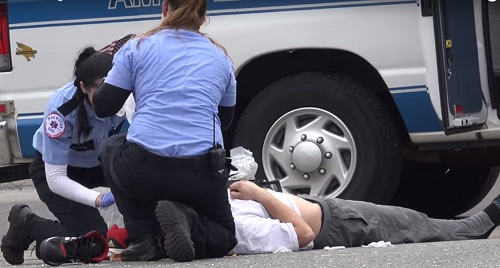By Sam Drysdale
State House News Service
As opioid overdose deaths remain high across the state, substance abuse treatment providers say that increasing reimbursement rates for Medicaid patients may be necessary to avoid closing available beds at addiction and recovery facilities.
MassHealth and the Executive Office of Health and Human Services are considering a score of rate changes, increasing how much providers are reimbursed when they admit a patient with Medicaid insurance for addiction treatment.
Providers are reimbursed for Medicaid patients at rates 50 percent below what they are paid on average by commercial insurers,David Matteodo, director of the Massachusetts Association of Behavioral Health Systems, said at a hearing on the rate change Monday.
“Our providers really want to treat MassHealth. But we simply cannot continue to do it with a rate that’s not viable,” Matteodo said.
Richard Curcuru, president and CEO of Cape Cod-based addiction center Gosnold, said his facility does not want to turn away Medicaid patients, but that they may need to close services in order to continue to treat them.
In 2016, 65 percent of Gosnold’s patients had commercial insurance and 35 percent used MassHealth, Curcuru said. Since then, commercial admissions have declined year after year, and in 2023 commercial payers represent about 20 percent of patients, compared to 80 percent on Medicaid.
“Even though the Medicaid rate was not sufficient back then, reimbursement from the commercial payers covered the shortfall we had on our Medicaid patients,” he said. “Currently, our expenses for detox exceed the Medicaid reimbursement. This means that there is a significant loss to the organization for every Medicaid patient we admit. This is obviously not sustainable.”
Gosnold is considering reducing the overall detox bed count or only taking commercial payers — something that is not in line with their mission as a rehabilitation and recovery facility, Curcuru said.
Behavioral health and substance use treatment centers around the state have canceled services in recent months, as the Medicaid reimbursement rate compounds with issues of short-staffing and increased safety problems.
In April, MiraVista Behavioral Health Center in Holyoke ended some of its addiction programs, including detox beds, saying in a statement they made the decision to do so based on “the reality of inadequate state reimbursement, which falls millions of dollars short of the costs required to operate and sustain programming,” 22 News reported.
A few days later in Worcester, addiction and homelessness service provider Community Healthlink closed admissions to three inpatient programs after a state inspection. Members of SEIU Local 509 told the Worcester Telegram & Gazette that the union raised concerns about safety and staffing at the facility before the inspection.
“In addition to the reimbursement challenges, we have had similar expense challenges. Due to COVID, we have had to increase all expenses, but mostly staff salaries,” Curcuru said. “We’ve had to raise the salaries for most direct staff, especially nurses, considerably in an attempt to recruit and retain staff. The state has temporarily increased the rate a couple of times during this period to address this — but not to the extent that we’ve had to increase staffing salaries. This has resulted in approximately $150,000 per month loss, or $1.8 million annually, in our detox services.”
He added that Gosnold began renovating one of its facilities to open 33 new beds earlier this year, and the project will be completed by the end of May. But because of the company’s financial outlook, they may have to sell the facility to keep the beds that they currently have still open and operating.
“This is the most significant financial challenge Gosnold has experienced in the 50 years we have been providing services and I’m not sure we will survive if the rate is not comparable to what it costs us to deliver the care,” he said.
Meanwhile, the most recent public health data shows that opioid overdose deaths remain high, and increased amounts of the highly-addictive and deadly drugs fentanyl and xylazine are being found on the streets.
In the first nine months of 2022, there were 1,696 confirmed and estimated opioid-related overdose deaths. That’s about six deaths every day, but it’s also about 25 fewer deaths than in the first nine months of 2021.
Last month, the state Bureau of Substance Addiction Services put out a clinical advisory on the presence of xylazine — an animal tranquilizer not meant for human consumption and called the “zombie drug” for the severe wounds and necessary amputations it causes — in Massachusetts’ street drug supply.
“In Massachusetts, the opioid crisis continues to wreak havoc on countless lives,” said Jameson Pinette, regional vice president of Recovery Centers of America. “Increased Medicaid rates for substance use treatment is a crucial step in addressing this epidemic. By ensuring adequate reimbursement rates, we can improve access to quality treatment and care, attract and retain skilled professionals, reduce reliance on emergency services and improve patient outcomes.”
 New Bedford Guide Your Guide to New Bedford and South Coast, MA
New Bedford Guide Your Guide to New Bedford and South Coast, MA








